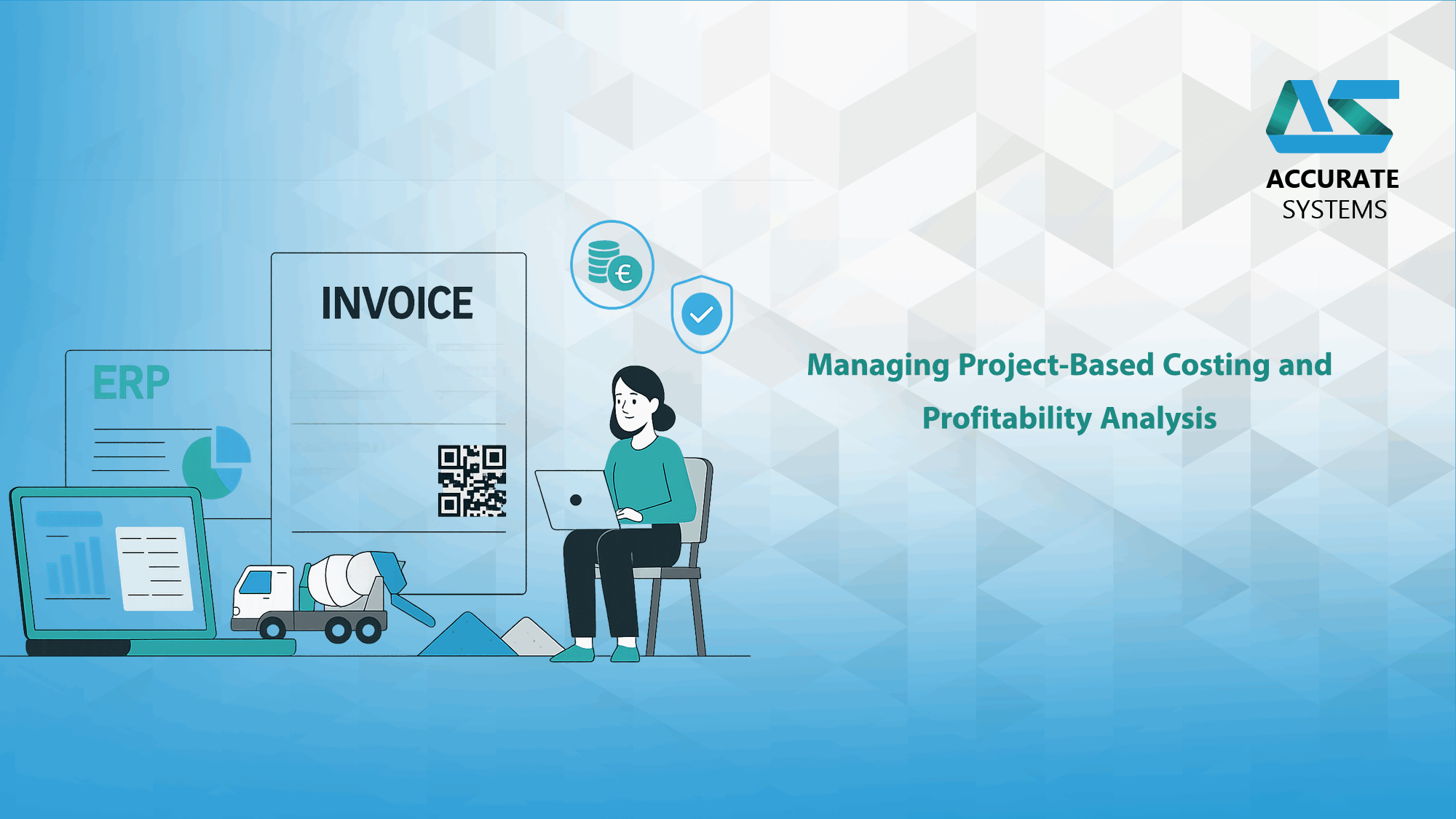Introduction: The Need for Financial Transparency in the Ready-Mix Industry
The ready-mix concrete industry in Saudi Arabia is highly competitive and capital intensive. Managing fleet operations, raw materials, batch production, and timely deliveries is already complex—but aligning these with finance, profitability tracking, and e-invoicing adds another layer of challenge.
With the implementation of Phase 2 of ZATCA (Zakat, Tax and Customs Authority) e-invoicing regulations, ready-mix producers are now required to digitize invoicing and integrate their operations with compliant accounting systems.
ERP systems built for the concrete industry not only streamline operational workflows but also ensure full financial visibility, traceability, and compliance with local tax regulations.
Linking Operations with Accounting and Invoicing
A modern ERP system integrates all departments—sales, production, fleet management, and finance—under one centralized platform. This eliminates manual data duplication, enhances reporting accuracy, and provides real-time financial visibility.
Key Features:
- Sales-to-Invoice Automation: Automatically convert confirmed sales orders into draft invoices based on dispatched quantity, mix design pricing, and delivery location.
- Batch Costing Integration: Capture cost per cubic meter by linking BOM consumption, fuel use, labor hours, and fleet expenses to each delivery.
- Accounts Payable & Receivable Sync: Connect payments to customer ledger accounts and match supplier invoices with purchase orders and material receipts.
- Dynamic Chart of Accounts: Structure financial accounts by region, project, or client type for granular financial analysis.
- Multi-Currency and VAT Support: Manage cross-border transactions and ensure tax compliance with KSA VAT rules.
Benefits:
- Eliminate revenue leakage from missed billing
- Reduce manual effort in reconciling operational and accounting data
- Enable audit-ready documentation and internal control
Managing Project-Based Costing and Profitability Analysis
Ready-mix concrete is often delivered to large-scale projects like infrastructure developments, commercial buildings, and government contracts—each with specific reporting and margin requirements.
ERP systems help manage these contracts through:
Project Costing Tools:
- Cost Center and Profit Center Allocation: Attribute revenues and expenses to individual projects, allowing real-time profitability tracking.
- Bill of Quantity (BOQ) Alignment: Match concrete deliveries and material usage with BOQ-defined milestones.
- Revenue Recognition Models: Support accrual-based revenue models, milestone-based invoicing, or progress billing.
- Variance Reports: Compare budgeted costs vs. actual expenses to improve forecasting accuracy.
- Job Cost Ledger: Maintain a full history of income and expenses tied to specific contracts.
Benefits:
- Monitor high-volume, high-value contracts more accurately
- Strengthen compliance with customer billing schedules
- Improve cash flow forecasting and cost control
Automated E-Invoicing with ZATCA Compliance
ZATCA’s Phase 2 requirements involve real-time integration with the Fatoora platform for invoice clearance or reporting. ERP systems that are ZATCA-approved simplify this through embedded compliance features.
ZATCA-Ready ERP Features:
- Invoice Lifecycle Automation: From sales order to cleared e-invoice, with digital records of each transaction step.
- Real-Time API Connectivity: Seamlessly send invoice data to ZATCA and retrieve clearance status.
- Secure QR Codes and UUIDs: Embed invoice metadata and ZATCA-compliant encryption into PDF outputs.
- Audit Trail and Log Access: Maintain secure records of every transmission, update, or change for regulator access.
- Customizable Tax Templates: Adapt invoicing formats for different customer types (government, contractor, retail) while meeting compliance rules.
Benefits:
- Remove reliance on external invoicing tools or manual uploads
- Shorten invoice-to-payment cycles with faster approvals
- Meet legal obligations with confidence and automation
Additional Capabilities for Finance Teams
A fully integrated ERP system also enhances broader finance and strategy functions:
- Bank Reconciliation and Payments: Match incoming receipts with invoice data, and schedule vendor payments from the ERP.
- Fixed Asset Management: Track depreciation, insurance, and maintenance history of batching plants and trucks.
- Consolidated Financial Reports: Generate group-level or branch-specific P&L, balance sheets, and cash flow statements.
- Budgeting and Forecasting: Create financial plans tied to sales pipelines, seasonal demand, or government projects.
- Role-Based Access and Audit Controls: Set permissions for finance, accounts, tax officers, and management with traceable activity logs.
Conclusion: Financial Integration + ZATCA Compliance = Operational Excellence
ERP systems tailored for ready-mix concrete producers in Saudi Arabia offer a powerful bridge between operations and finance. By linking batch production, delivery, and procurement data directly with accounting, companies gain real-time financial insight, better cash flow control, and strategic clarity.
Combined with full ZATCA Phase 2 e-invoicing compliance, ERP solutions reduce risk, boost efficiency, and ensure credibility with auditors, government authorities, and corporate clients.
For forward-thinking construction suppliers, ERP isn’t just an accounting tool—it’s a business enabler.
#ERPNext #ReadyMixConcrete #ZATCACompliance #EInvoicingKSA #ConcreteERP #ProjectCosting #SaudiVAT #ConstructionFinance #KSAERP #DigitalTransformation



Leave A Comment